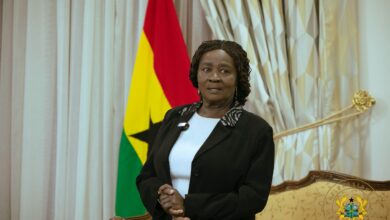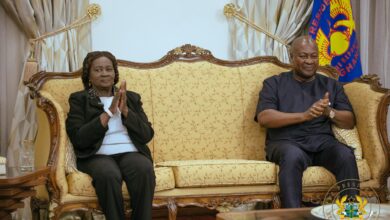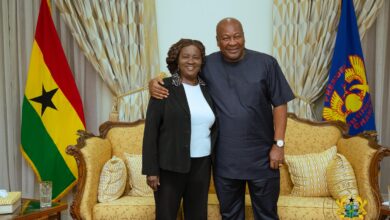
Ghana will have the privilege of hosting this year’s World Press Freedom Day (WPFD) today May 3. In a sense, the WPFD is coming home again because the day was established in response to a call by African journalists who in 1991 produced the landmark Windhoek Declaration on media pluralism and independence. It has previously been celebrated in Tunisia, Mozambique and Senegal.
The UN declared May 3 to be World Press Freedom Day to raise awareness of the importance of freedom of the press and remind governments of their duty to respect and uphold the right to freedom of expression enshrined under Article 19 of the 1948 Universal Declaration of Human Rights. This year’s WPFD is very significant because it is the 25th anniversary of its establishment and the 70th anniversary of the Universal Declaration of Human Rights.
The 1992 Constitution of Ghana affirms the principles of free expression and freedom and independence of the media as enunciated in the UDHR. Furthermore, the Constitution per its Article 12 directly and succinctly provides protection and promotion of the freedom and independence of the media and sets out the mechanisms by which those rights are sustained and enjoyed. The same chapter, which has abolished censorship in Ghana, also established the National Media Commission as both a custodian and guarantor of the freedom and independence of the media within the broader framework of freedom of expression.
It was not always thus. The first 35 years after independence were difficult years for Ghana’s media. With different regimes imposing either their own ideological prescriptions or self-interest on the media, freedom and independence were observed more in the breach. All governments of that period considered the media as mere vessels for their propaganda and, therefore, placed them under the thumb of the Ministry of Information, or worse the seat of government.
Apart from a few newspapers published by some brave and hardy souls, all information and media resources were owned and controlled by the government of the day; obviously, the state-controlled broadcasting with an iron fist. In those days before the technology provided opportunities for social media interaction, this meant that the governments of the day absolutely controlled the public discourse and rewarded or punished journalists according to their loyalty to the governments’ agendas.
Today, the situation is completely different. The Ghana media scene is dominated by private ownership while the state-owned media is protected by law from governmental interference. Censorship has been abolished and the last vestige of state control via the criminal libel process was abolished 17 years ago. However, some media rights advocates see the continued use of contempt laws against journalists as an impediment to the full enjoyment of press freedom.
UNESCO marks World Press Freedom Day each year with a theme related to press freedom and its ancillary issues such as good governance, media coverage of terrorism, impunity and the role of media in post-conflict countries. This year’s global theme is “Keeping Power in Check: Media, Justice and The Rule of Law.” For us in Ghana, this theme is historically appropriate for the role of the media in our history.
Media historians explain that the enthusiasm for newspapers in the Gold Coast during the latter parts of the 19th and early parts of the 20th century, was because of the ability and willingness of the press to take issues with colonial policy of the colonial government.
It is in our DNA. Our recent history shows that journalists and media institutions in Ghana speak truth to power on a daily basis. It is for this that we celebrate the journey we have travelled so far and must feel confident of the future of our profession and industry in the coming years. Today, Ghana ranks at 23rd on the global press freedom list and number one in Africa.
This year’s theme must encourage us to continue to be the watchdogs of not only our freedoms, but of how governments and others who have power and authority treat our people, especially the poor. However, charity begins at home. The watchdog must come to its duties with honesty, dedication and purpose. We cannot seek fairness and justice; we cannot fight against galamsey, corruption or other social ills when we are ourselves covered in filth. We must come into equity with clean hands.
Ghana’s media is far from perfection despite the huge advances made over the past two decades. Ghana is a developing nation, and with that categorisation come all the many difficulties our people endure in the daily struggle for survival. The media reflect those difficulties and inequalities too. For example, too many journalists are poorly paid, and work without adequate resources and protection. Our media space is skewed against the poor.
On the performance of the media, the over-concentration on political party rivalries and celebrities detracts from the media’s ability and willingness to cover all sections of society fairly. Apart from community radio, which by definition is owned and controlled by communities, commercial and state-owned media hardly provide any space or time to community initiatives undertaken by poor people or anti-poverty policies designed to help poor people.
The Constitution emphatically established the FREEDOM AND INDEPENDENCE of the media. Without doubt, we have the freedom but what about the independence? In other words, today, governments of Ghana no longer routinely harass journalists as was the case in the bad old days. But what are we doing with our freedom? Many journalists and media establishments have sold our independence for a calabash of porridge to the highest bidder. Some people masquerading as journalists are in truth mere appendages of political and business interests. Those people are abusing our constitution and soiling the memory of our pioneers and those men and women whose sacrifices have brought us to our current situation.
The hosting of this global celebration of press freedom on our soil must lead to serious self-examination as a country; to rediscover the collective desire to live in freedom and not fear. We have to remember that press freedom is the cornerstone of all other freedoms and to remember that press freedom is meaningless unless it is linked with its independence.
We must let this global event being held here in this country count for something.
By : Nana Kwasi Gyan-Apenteng
The writer is the Chairman of the National Media Commission
ahotoronline.com




